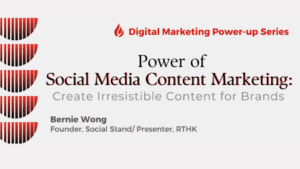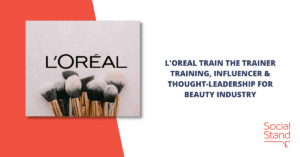My Involvement in the “Likes” Industry
When I first established my social media advertising company, I was interviewed by a reporter friend. This came at a time when digital advertising was fast-growing in popularity. The newspaper headline read “Hong Kong IT professional harnesses the flourishing business of fake likes.” The reporter originally meant to publish a catchy title that would attract readers. He doesn’t want to belittle the social media marketing industry. Looking back, I laugh at myself. This is for inadvertently portraying marketing as fraudulent – a practice that has become increasingly common today. But this black mark of mine has turned into a good topic when providing services to my clients. It’s also a concept I have always advocated for them. What brand marketers should strive to gain are likes from genuine followers.
Quantity or Quality: Which Should Advertisements Pursue?
Most social media managers understand that Facebook and Instagram are good platforms to position their brands. Yet, they are also aware that the number of followers they have is not the be-all and end-all of social media engagement. The organic reach of social media platforms is dismally low today. Do not make the mistake of thinking that Facebook or Instagram will connect you with your target audience. You will need to place advertisements with them. After all, advertising fees are their source of income. The number of followers of your Facebook page or Instagram profile is a useful, feel-good metric. However, these hard-earned followers may not necessarily be engaged by the content which you have painstakingly crafted. Therefore, a more effective advertising technique used in recent years has been to focus on getting content to the right audience. That’s instead of simply racking up more followers. Delivering high-quality content to a brand’s target customers will gain genuine business, customers, likes, and engagement.
What You Did Not Know About Tagging Friends and Sharing Posts on Facebook
Engagement through social media is essential. After years of experience, many small- and medium-sized enterprises have also come to discover it. This is much to my delight. But there are still many posts that urge viewers to like the post, share it for a chance to win, and tag your friend. Let’s not go into the probability of winning such draws. Such draws are only legal in Hong Kong. That is if a brand possesses a “Trade Promotion Competition License” on their business. At the end of 2017, Facebook announced that it discourages such forms of engagement with followers. It’s because they were inaccurately labeled as popular content by its algorithm. These include voting with emoticons or requests for users to like/share/tag to participate in a draw, which is a dime in a dozen. Users may also be encouraged to leave comments while a chatbot then engages them. This has become a growing practice on social media. Facebook or Instagram does not ban such low-quality posts. However, accounts that adopt such tactics will be unknowingly penalized. Their reach will be significantly reduced.
Fake “Likes” and Real “Likes”
In recent years, there have been reports of how even established brands, such as Taobao, buy likes on social media. However, these fake likes will only boost the perceived – not the actual – engagement of your page. Instead, revisit the fundamentals of a good content marketing strategy. Whether you find it hard to sell or provide valuable content stems from how you want to resonate with your brand’s target audience. Gain genuine likes by crafting a compelling brand story from the heart.
Original Source: https://www.mpfinance.com/fin/dailyb2.php?col=1592303366123&node=1598239063596&issue=20200824








